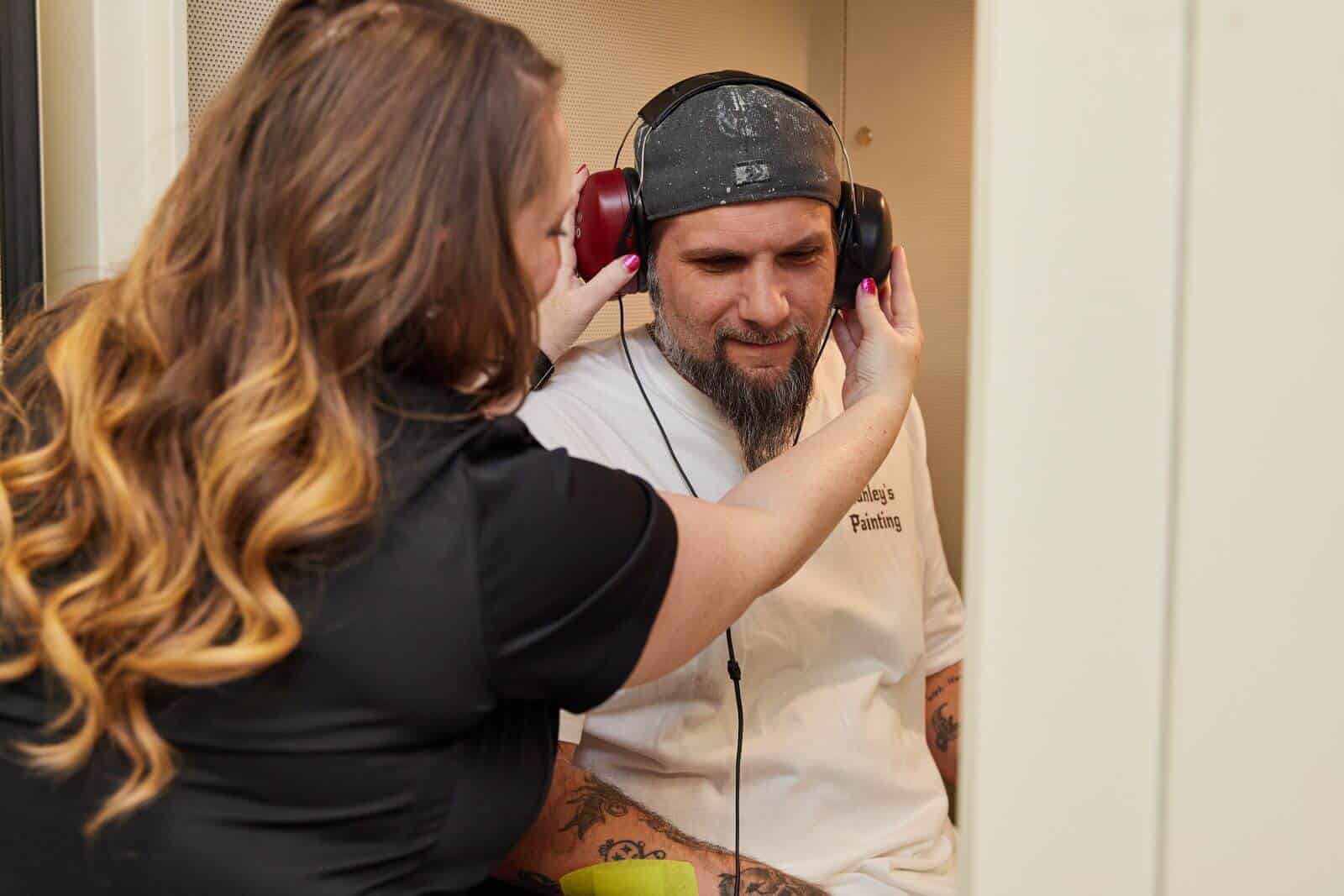Tinnitus Treatment
Tinnitus is a very common condition - in fact, it affects over 45 million people in the U.S. alone.
It manifests as continuous or intermittent sounds in the ears. Some people who have experienced tinnitus describe it as a buzzing, clicking, hissing, or whistling sound. These sounds, which are not actually occurring but are perceived to be heard, can be low or high pitched and in only one or both ears.
Some of the causes of tinnitus include aging, gradual hearing loss, exposure to loud noises, use of in-ear headphones, excessive ear wax, infection, as well as smoking and drinking alcohol. Injury to the ear through head trauma can also be a factor. One important thing to remember is that tinnitus is merely a sign of a different pre-existing hearing condition. Therefore, visiting a hearing health care professional to determine the root cause of the condition is key to treating tinnitus.
Schedule an Appointment

Tinnitus Treatment
Sound therapy is a treatment that involves the use of pleasant background noises to offset the perception of tinnitus and is one option to provide temporary relief to the patient. Hearing aids, on the other hand, can offer more permanent relief through their ability to amplify external sounds, helping the listener to focus on sounds other than the ones created by their tinnitus.
Tinnitus and Loud Noise
Loud sounds aggravate tinnitus. To avoid more loud noise exposure, take the following precautions:
- For activities such as mowing the lawn, using loud maintenance equipment, or playing or listening to live music, use ear protection such as earmuffs or earplugs.
- Be aware of how loud is too loud – if you have to shout to be heard when someone is standing 6 feet away from you, the noise level is too loud and will aggravate your tinnitus.
- Use noise-canceling headphones to block out background noise and keep the level down if you listen to music or other audio content using headphones. It is recommended that you maintain the volume below 80% and practice the 60/60 rule when listening: Only listen at 60% of the volume for a maximum of 60 minutes before taking a break.

Our hearing professionals are trained in evaluating and managing your tinnitus through the use of sound stimulation and hearing aid technologies. Our aim is to provide you with relief that will in turn improve your overall quality of life!
Contact Us
